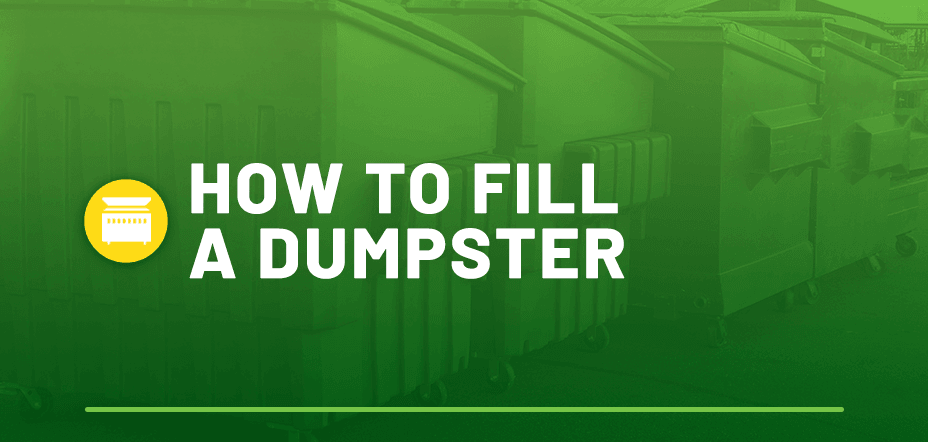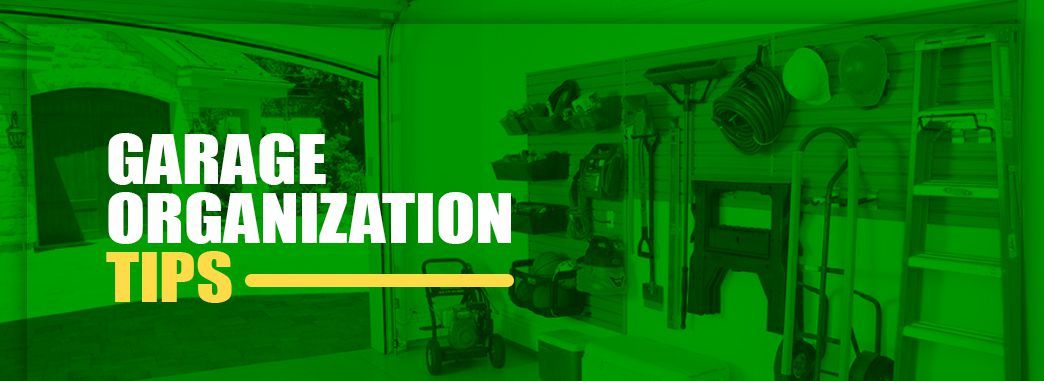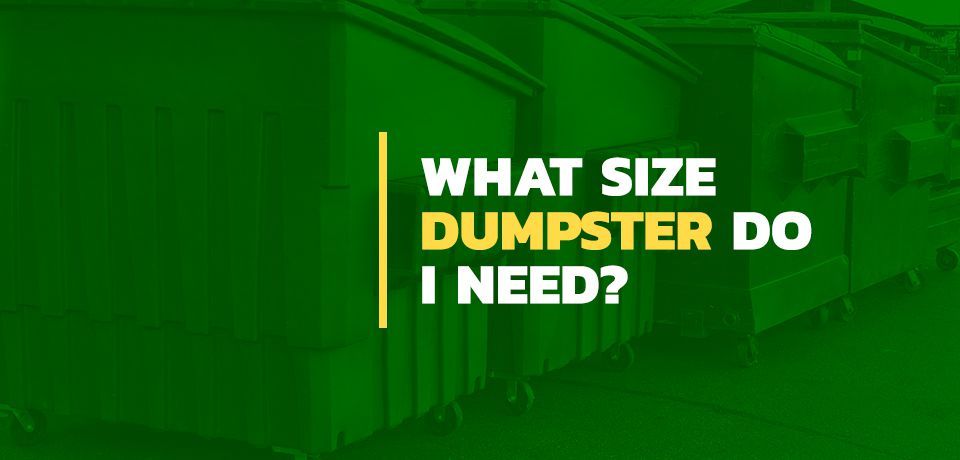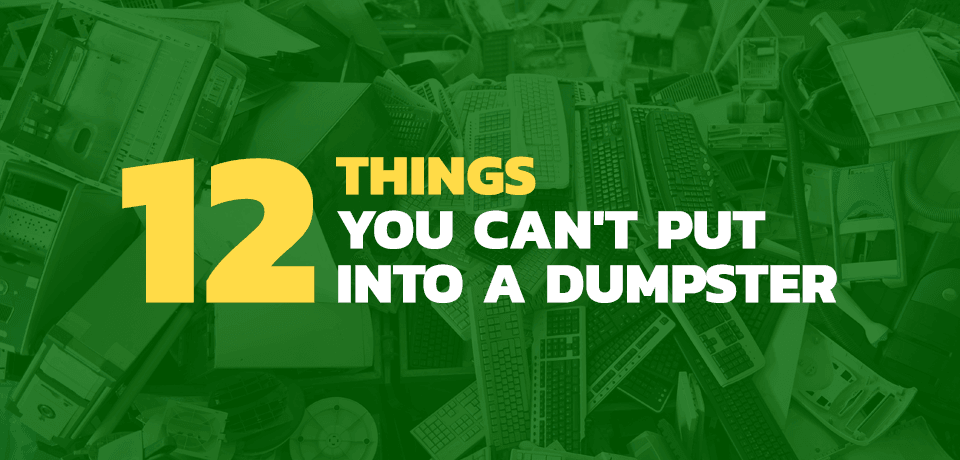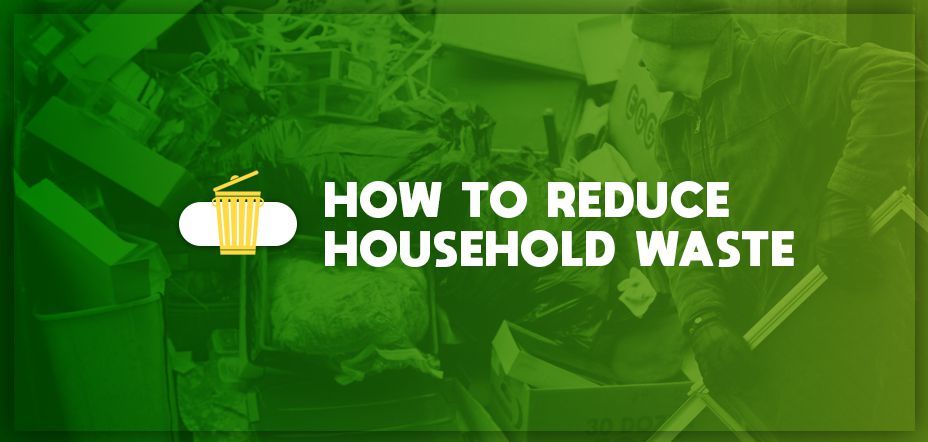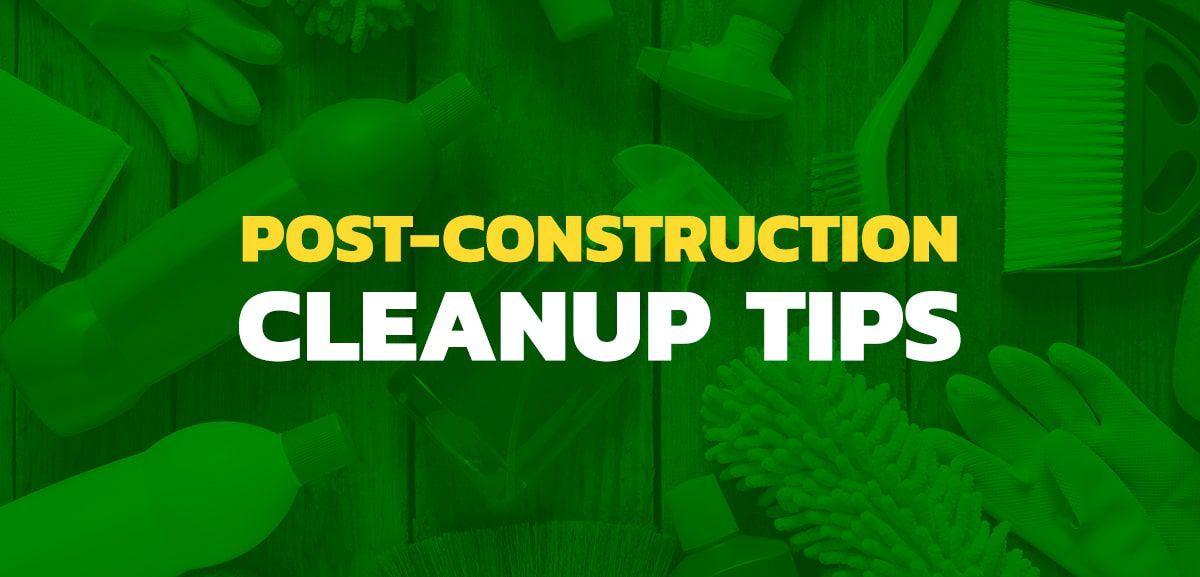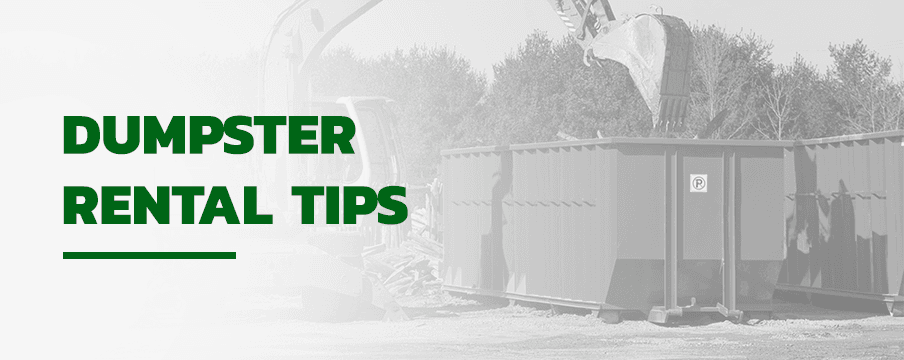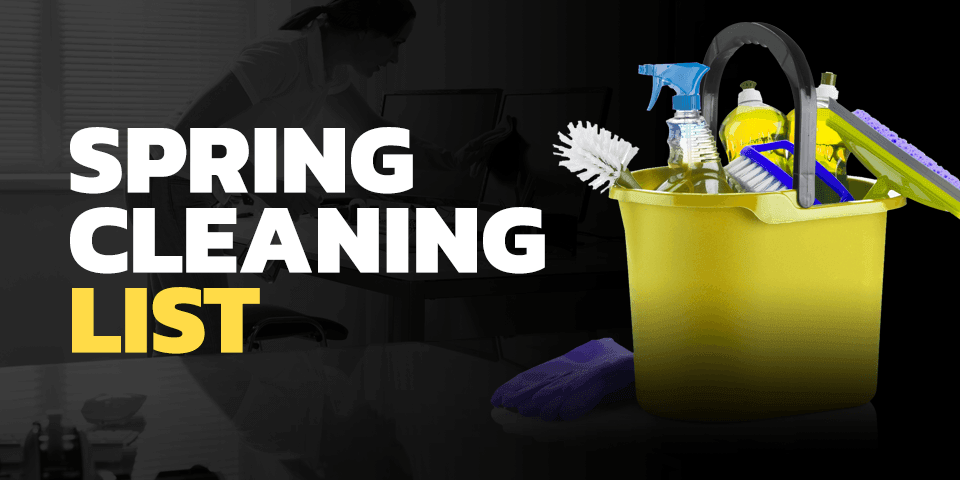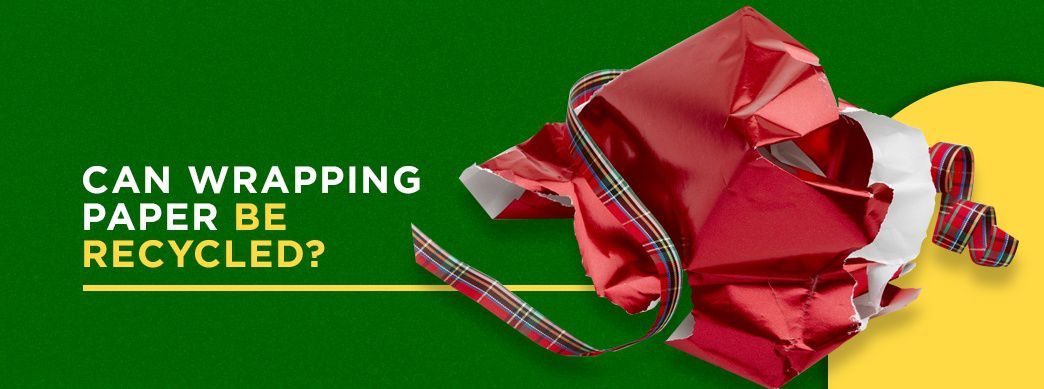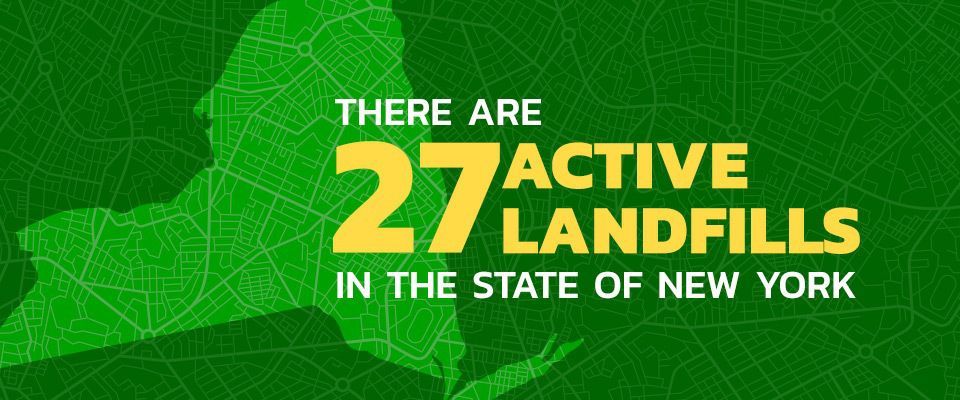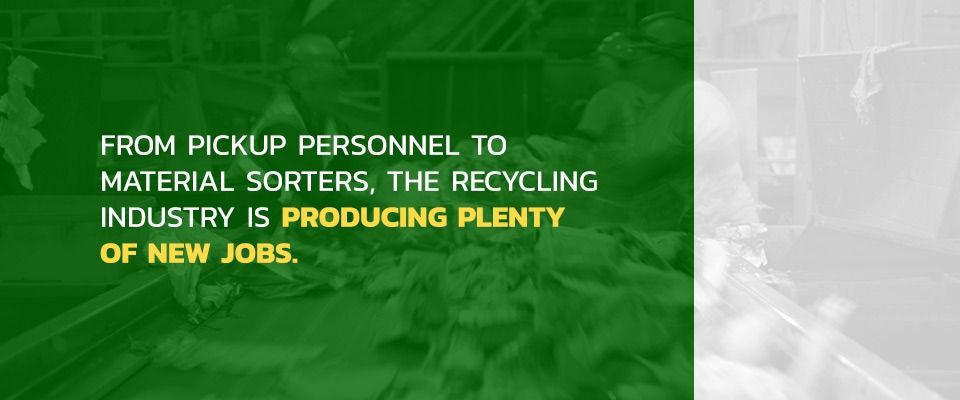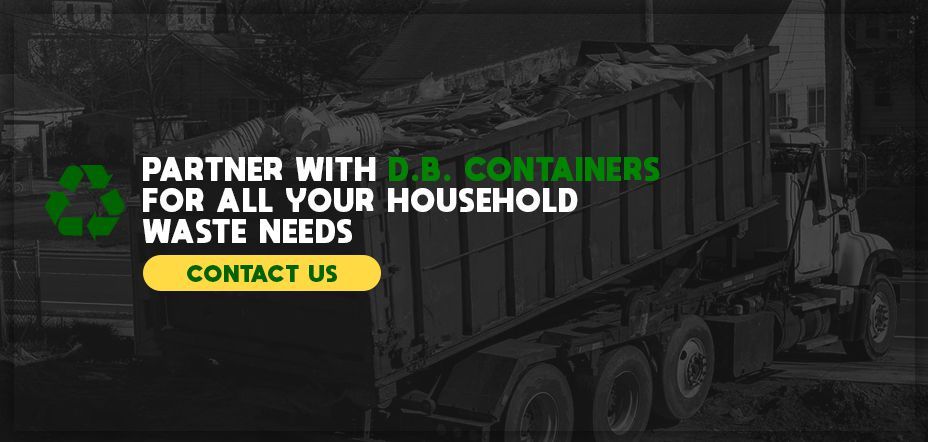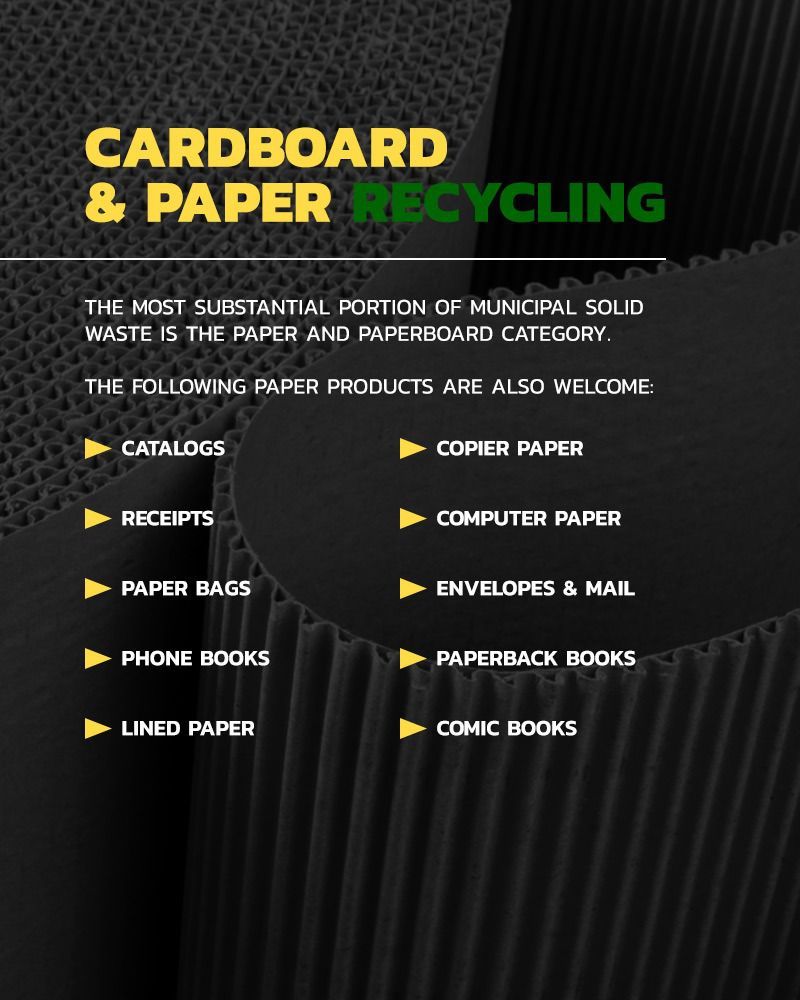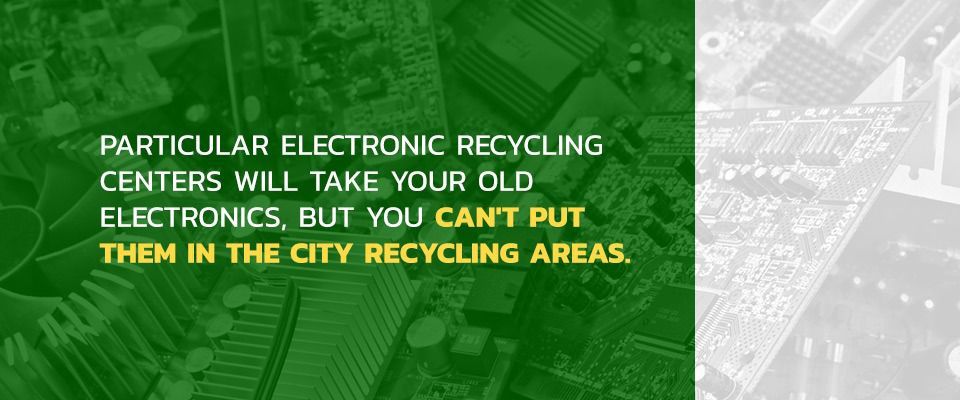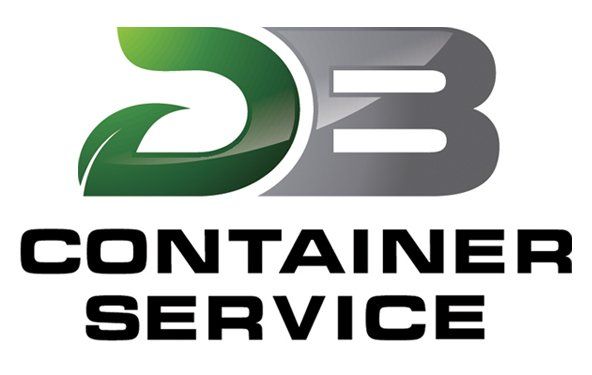What Can I Recycle?
What Can I Recycle?
Making the most of materials through recycling is a noble practice, but are you putting the right items into your bin? Many people are unaware of the specifications for recycling, which leads to mishaps and setbacks for facilities — not to mention bad news for the environment.
Misplaced items in recycling bins are a widespread problem. The average contamination rate — how many non-recyclables taint recycling batches — for communities and businesses is approximately 25 percent.
Mistakes in recycling are easy to make, but they're also easy to fix with a helpful guide. If you've been wondering, "What can I recycle and what doesn't meet the standards?" this resource can give you an answer.
Benefits of Recycling
Your thoughts on recycling are probably different from those of some of your friends and family members, as most Americans have differing opinions about it. These Americans also have different influences and levels of access. For every 10 Americans, about three of them say their community strongly encourages recycling. There are significant, real advantages to recycling and re-using that everyone should know so that the number can reach 10.
In the long run, recycling is a beneficial endeavor that can transform your community and the earth. Check out these reasons that you should get involved in recycling.
1. Reduce Landfill Buildup
Unwanted materials have been thrown away in remote spots for centuries, but the space for landfills is quickly diminishing. Unfortunately, land isn't unlimited, and the capacity of existing landfills is shrinking.
You may think this issue is a distant problem, but landfills occupy land that's near you and your day-to-day life. According to the most recent data, there are 27 active landfills in the state of New York — which is likely closer than you expected.
With such an at-hand problem and concerning shortage, recycling presents a helpful solution in waste reduction. A major portion of landfills end up being recyclable products, so when these items circulate through recycling, they free up a huge amount of space.
2. Preserve Natural Resources
Raw materials are exhaustible, but recycling prevents the need to continually harvest new materials. Natural resources can run out, and the rapid cycle of consuming and discarding these materials speeds the process.
Resources develop or grow back at their own rates, but the quicker people go through metals and paper products, the less time these supplies have to replenish. By repurposing materials, we can ensure that these resources aren't depleted as quickly and can benefit future generations. Recycling places less pressure on mines and forests, and it offers a reasonable alternative to acquiring all new resources.
3. Avoid Pollution
Chemicals and harmful substances can unintentionally be placed in landfills, but special procedures in the recycling process can decrease negative impacts. Technology and batteries are two kinds of items that can contribute to pollution because they hold mercury and other harsh materials.
Pollution from excavation and disturbance of land is also serious. Metal mining is a leading contributor to air pollution because it inadvertently releases elements like mercury into the atmosphere. Shifting our dependence from fresh raw materials to reused ones is a promising answer to the problem. Recycling protects settings from contaminants. With less raw material work along with the careful disposal of toxins, recycling is redefining the trajectory of our environment when it comes to pollution.
4. Boost Economic Growth
Aside from environmental health and longevity, there's also an upside for the economy when we recycle more. The economy profits from recycling through more affordable manufacturing, job creation and incentive programs. Repurposing existing goods is less expensive than unearthing new materials. Manufacturing companies can save considerable amounts of money by opting for pre-used materials.
If you're looking to start reducing waste right now by improving your personal waste management, here are a few more ways to get started.
From pickup personnel to material sorters, the recycling industry is producing plenty of new jobs. The more people participate in recycling, the more facilities need employees, which helps the economy thrive.
Incentive programs extending perks to recyclers are also a notable benefit. For instance, you can get rewards like small payments at drop-off facilities when you turn in cans or bottles.
5. Maximize Potential Energy
The energy expended on waste disposal, landfill work and supply extraction is immense. However, recycling conserves energy so that it can be used for other purposes.
The possibilities for better energy use are closely tied to recycling. In America, steel recycling saves the amount of electrical energy needed to power approximately one-fifth of households in the United States for a year. Recycling frees up sub-par uses of power for other applications.
What Can Be Recycled in NYC?
Recycling practices are distinct in each area, and in bustling New York City, there are clear rules for what you can load up in your recycling bins. Based on which materials are worthwhile and safe to process and collect, the New York City government has restricted certain items and kept others. Curbside residential recycling takes many common materials, like rigid plastic, metal, glass, cardboard and paper. Check out this recyclable materials list for a more in-depth explanation so you can be prepared when collection day comes around.
1. Cardboard and Paper
The most substantial portion of municipal solid waste (MSW) is the paper and paperboard category. Fortunately, cardboard, paperboard and paper products are readily collected by recycling facilities.
You can put corrugated cardboard boxes, smooth packaging, egg cartons and trays in your recycling bin. While pizza boxes can even be repurposed, they can't hold any residual food or oily liners. Aseptic packaging is suitable as well.
There's an abundance of potential in paper products, and lots of finishes and consistencies are a part of the list. From newspapers to celebratory wrapping paper and glossy magazines, most types of paper can be processed for reuse. The following paper products are also welcome:
- Catalogs
- Receipts
- Paper bags
- Phone books
- Lined paper
- Copier paper
- Computer paper
- Envelopes and mail
- Paperback books
- Comic books
2. Glass
The purity in glass doesn't decrease like other substances when it's recycled, and it's more cost-effective for manufacturers to form glass from old glass rather than seeking out additional materials.
Glass bottles and products can have a range of tints like clear, amber or green, but for recycling, they're limited to bottles and jars. If there are any metal caps, remove them for the metal recycling pile. For additional ideas on glass to recycle, check out this list of common recyclables:
- Soda bottles
- Wine or beer bottles
- Perfume bottles
- Pickle jars
- Jam and jelly jars
3. Metal
Whether in metal bakeware, canned commodities or any number of other items, metal is a prevalent material, and Americans throw away approximately 2.7 million tons of aluminum, a highly used metal, annually. Helpfully, New York City embraces all kinds of metal in their recycling.
You can distribute aluminum cans and foil, and steel and tin cans should be placed in the bin. Aerosol cans are even admitted into recycling bins. Metal lids, caps and plates also belong. Bulky appliances and tools totally or mostly consisting of metal that can fit into bins are satisfactory as well.
4. Rigid Plastic
Americans are increasingly dependant on plastic, but over 40 percent of it is used only once before it's discarded. The structure of plastic determines whether it can enter recycling systems. If it's extremely bendable and loses its configuration, it's not considered rigid and shouldn't be incorporated into your city recycling.
Many single-use containers are qualified for recycling, like hard tubs, plastic bottles, and trays for food items like yogurt and cottage cheese. Wash these food cases out prior to putting them in the bin. Household bowls and pots are eligible for recycling, as are any appliances that hold their form. Check out a few more examples of rigid plastics:
- Crates
- Bottles
- Jugs
- Buckets
- Pails
- Furniture
- Jars
- Toys
What Can't Be Recycled in NYC
As important as knowing what's on the NYC recycling list is knowing what doesn't make the cut. In all cases, containers contaminated with food, dirt or grime should never be placed in a recycling bin. Items have to be dry, too, or they can damage the rest of the contents.
In New York City, several items aren't accepted for recycling programs even though they're typically included in other regions. Check out which items you can't recycle below.
1. Batteries
While batteries shouldn't be thrown in the garbage, New York City curbside recycling also doesn't gather them. Batteries have ingredients that can damage water and soil if they leak out.
Rechargeable batteries, alkaline batteries and button batteries aren't appropriate for your recycling bin. Car batteries are another large-scale product that shouldn't be added, though it should be recycled elsewhere. To protect communities from these toxins, you can drop used batteries off at an authorized location.
2. Foam
Foam products aren't eligible for recycling bins, partly because of their makeup. They have such a high percentage of air that transportation is more expensive and energy-consuming than the end product is worth. Another reason is that they get dirty and unusable quickly.
Many disposable cups, take-out containers, egg cartons and plates are made of polystyrene foam. Expanded polystyrene is used for packing peanuts and other packaging supports.
3. Flexible Plastic
It's only possible to put a single piece of plastic through recycling about two to three times. Then, its quality is so low that it's not fit for use. The recycling lifespan of plastics isn't as extensive as that of other materials, and it's not as doable to sort them at facilities.
It's not surprising that flimsy and bendable plastics, like resealable pouches, aren't collected for recycling. Plastic utensils aren't allowed either.
Film plastics like wrappers can't go in your recycling either, but stores and businesses often accept plastic grocery bags for salvaging. Here are some other flexible plastics you shouldn't include:
- Toothpaste and lotion tubes
- Single-use coffee pods
- Straws
- Malleable cosmetic containers
- Basketballs and soccer balls
4. Non-Jar/Bottle Glass Containers
Not all glass melts at the same level of heat, so items beyond jars and bottles complicate recycling. Sticking to a general glass composition is a strategic way for facilities to manage the meltdown process. Also, broken glass isn't acceptable because glass shards and pieces are a danger to glass handlers. Windows and mirrors aren't allowed in recycling bins. In their state, they can easily be broken, so they need special considerations at a drop-off site.
Many individuals think light bulbs can go in glass bins because they're mostly made of glass, but the filament and metal aren't suitable for curbside recycling. The following glass items should stay out of your bin:
- Pyrex dishes
- Eyeglasses
- Nail polish bottles
- Ceramics
5. Soft or Dirty Paper
A rule of thumb for recycling is to distribute clean items in your bin, meaning no leftover food or other residue. Effective recycling relies on uncontaminated objects, and for vulnerable paper products, this stipulation is a particular concern. Paper can get damaged easily by a number of factors, so look over your paper before piling it for collection.
There are softer, weaker paper products too, and their fibers don't conform to the typical paper recycling system. Soft paper consists of toilet paper, tissues, napkins and paper towels.
6. Tanglers
Sorting is a heavy-duty part of recycling, and certain contents can delay the flow of the process. "Tanglers," or any string-like items that wrap around others, are a recurring problem for recycling enterprises. As the items go through the organizing machine, the strings get caught on the apparatuses.
Tanglers include ropes, computer cords, hoses and wires. Light strands and holiday lights can't be put in recycling bins for the same reason light bulbs can't, but they're also a troublesome tangler.
7. Waxy or Plastic-Coated Paper
Coatings of wax or plastic help paper products withstand contact with grease and water. However, mixed-material papers like these mess up the recycling process for paper. Paper recycling utilizes water to reform products, but plastic and wax don't break down under the same conditions, making the materials incompatible.
These paper products include candy wrappers and some granola bar packages. Freezer containers and to-go food boxes also fall into this category.
8. Electronics
Tossing electronics in dumpsters or bins is dangerous — there are special procedures for disposing of your devices. Particular electronic recycling centers will take your old electronics, but you can't put them in the city recycling areas. Things like TVs, computers, monitors and laptops aren't received anymore. Even accessories like computer mice and keyboards are no longer recyclable. According to electronics recycling NYC policies, the following devices are also banned:
- DVD and VCR players
- E-readers
- Fax machines
- Digital video recorders
- MP3 Players
- Minor servers
- Scanners and prints
- Tablets
- Satellite and cable boxes
- Video game consoles
Additional Non-Recyclables in NYC
Even after this list, you might have some uncertainties during your sorting. To save you the trouble of looking up policies for additional items, here's a list of extra products you can't recycle:
- Window blinds
- Printer cartridges
- Lighters (cigarette and butane gas)
- Cassettes
- VHS tapes
- Markers and ink pens
- Hazardous chemical containers
Trust D.B. Container Service With Your Waste Removal
Taking care of your unwanted items in a responsible way is vital, and you need the right container for your daily disposal and waste management needs. Since 2001, D.B. Container Service has been providing high-quality dumpster rentals in a range of sizes.
From 10- to 30-yard dumpster rentals, we offer the ideal size for your project. Whether you're focused on residential use or business purposes, you'll find that our easy and speedy dumpster rentals are highly effective.
Contact D.B. Container Service today for a free quote.
